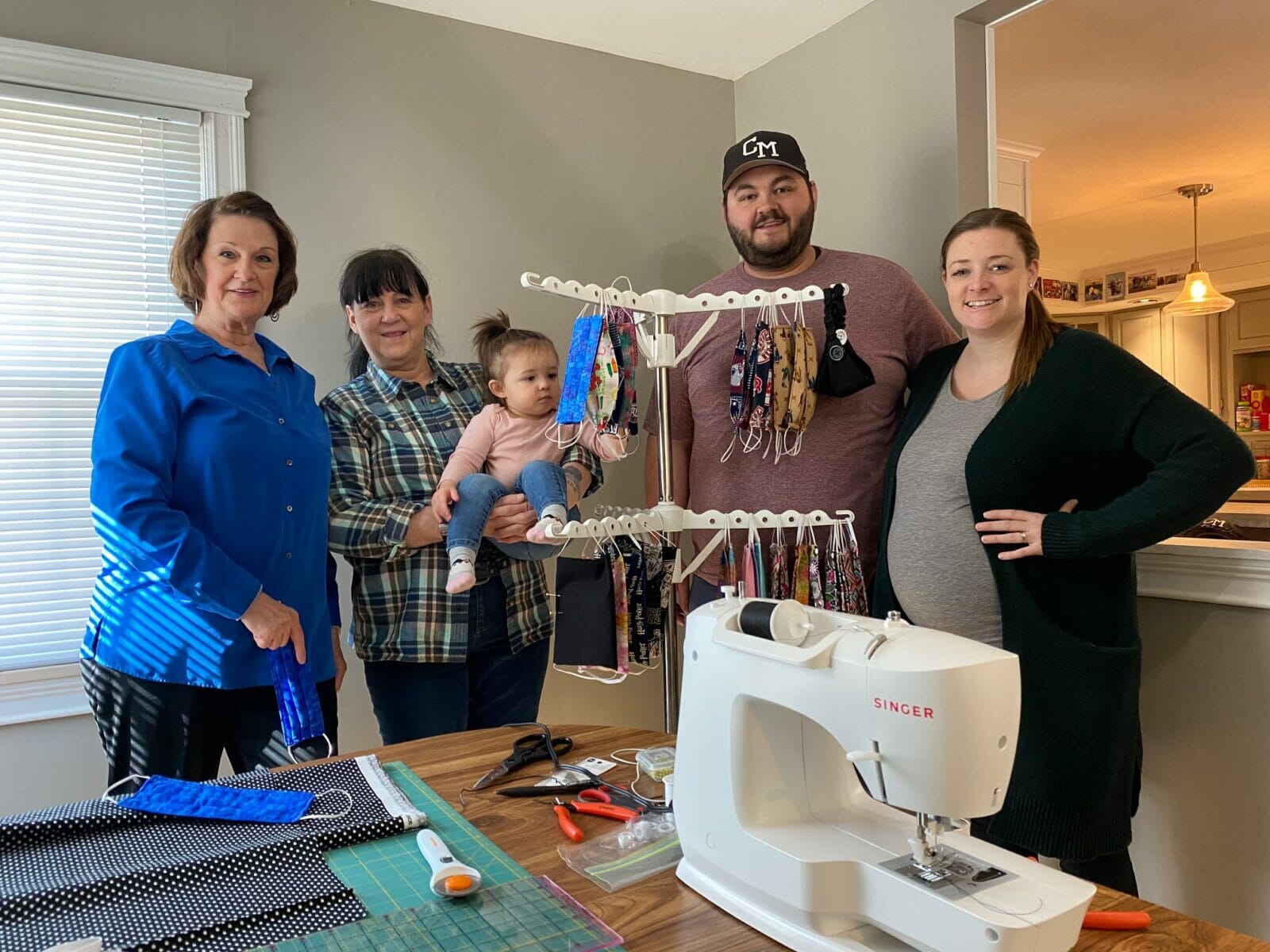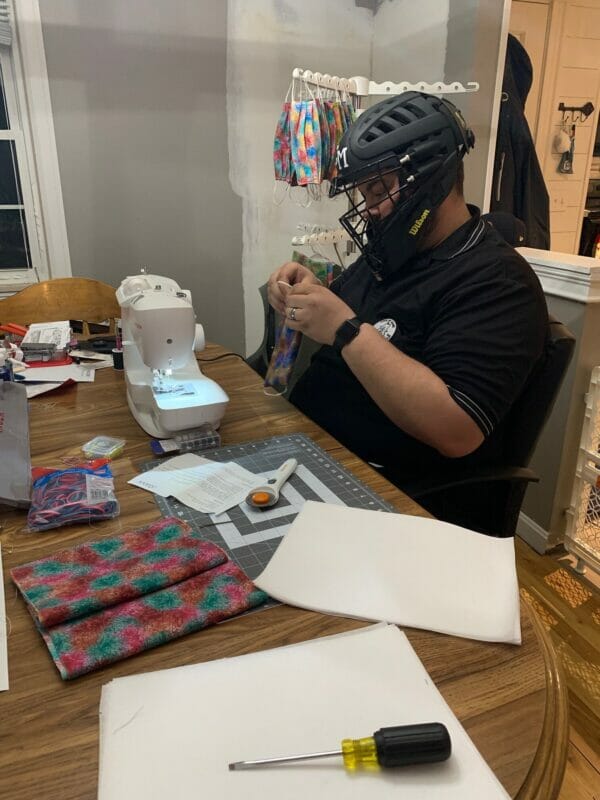Sewing Novice Swaps Umpire Mask to Make Masks for Frontline Workers

Meet Daily Point of Light Award honoree Dan Labrie. Read his story and nominate an outstanding volunteer or family as a Daily Point of Light.
Veteran umpire Dan Labrie can typically be found on a field presiding over a game, but as the coronavirus pandemic was breaking out and sporting events were on hold, the 33-year-old Auburn, Maine resident was instead sitting behind his brand-new sewing machine, doing his part to strike out sickness for frontline workers.
Dan, who says he was inspired to take action after New York Gov. Andrew Cuomo made frequent mention of how urgently hospitals needed masks during his daily briefings, got to work sewing masks with no prior experience sewing. As COVID-19 cases skyrocketed globally, Dan was joined by his mom, wife and some fellow church goers in the effort, sewing nearly 7,000 masks thus far. Trading out his umpire mask for homemade surgical masks, Dan is helping his community by making the ‘safe call’ and helping to protect essential hospital workers in Maine.
What inspires you to volunteer?
I’m inspired to volunteer because of how I was raised. I was taught the importance of hard work, and having a work ethic, as both of my parents worked very, very hard for everything we ever had. I’ve cherished what we had from an early age, and I’ve always been willing to help others. In addition to my other volunteerism, my wife and I are volunteers for the Dempsey Center in Auburn, Maine, which helps to support patients undergoing cancer treatments.
Describe your recent volunteerism.
When I first got the idea to sew masks, I asked my mom to meet me at Walmart and show me everything I needed to sew. She thought I was kidding. That night, I bought a sewing machine and all the pieces we needed. She was in awe of her 6’5”, 365-pound son sitting down at a dainty sewing machine to make masks (laughs). I probably took an hour to make the first one, and I’ve made thousands since then. At its peak, our group was made up of about half a dozen people sewing masks. Our service was inspiring other volunteers to pitch in.
Your personal connection to volunteerism deepened in recent years due to a traumatic event. What happened?
I went to college in Boston and then worked there after graduating. Marathon Monday, which is Patriots’ Day in Boston, has always been a day of celebration. In 2013, I was working at the finish line at the marathon, handing out water, when the bombing happened. That day, me and the other guys working the finish line helped to clear the street so emergency crews could get through to help people. We cut down barricades, went towards explosions to help. Since that day, being a part of a solution and greater cause has really resonated with me. When the pandemic struck, the masks became my solution. It’d be 2 o’clock in the morning, I’d almost be hallucinating, because I was making so many masks.
Why do you think it’s important for others to give back?

There are so many people that are not as fortunate. Even at a young age, I recognized that my family wasn’t fortunate, but there were people even less fortunate than we were. Our own family was facing adversity during the pandemic. My oldest daughter was experiencing medical issues, and the masks became a much needed distraction as we sought treatment for her. I would literally make masks all night, and then would wait in the hospital parking lot to try to get a glimpse through the window of my child and at the time, 8-month pregnant wife. Volunteering gives you the opportunity to help, because you never know when one day, your whole life could change, and you’re the one needing the offering plate at that point.
What’s been the most rewarding part of your service?
Right after we started making masks, a church friend who serves for the U.S. Coast Guard asked if I could make a mask out of one of his old uniforms. On the third day of the shut down in Maine, he called me and said his master chief had told USCG leadership about the mask, and then sent a message to the entire US Coast Guard Sector Northern New England asking for old uniforms to turn into masks. I was told that every coast guard branch in the U.S. sent out instructions on how to make homemade masks, as even the coast guard was concerned about mask availability. I made a little over 300 masks in about two weeks for the Portland, Maine USCG.
How have you continued to volunteer throughout the pandemic?
Making masks has slowed a little bit now that baseball and football have started up in some capacity. My mother and I are still making some masks to deliver to Central Maine Medical Center in Lewiston, Maine.
In one word, what does volunteering mean to you?
Love.
How can readers help?
Please visit our church’s website for more information about how you can give back.
Do you want to make a difference in your community like Dan Labrie? Find local volunteer opportunities.
